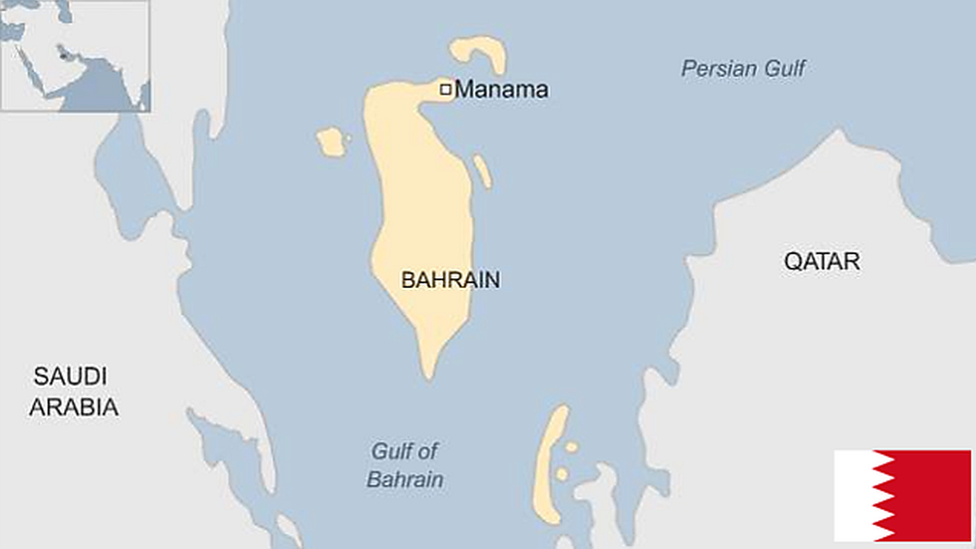Bahrain: Will polls fuel unrest?
- Published
Some opposition parties say they are going to boycott the election, as Mouna Ba reports
The people of the island kingdom of Bahrain go to the polls on 22 November in the first general election since the Arab Spring protests of 2011.
Tension has been high in the months leading up to the elections, as the Sunni-led government continues to clamp down on political dissent, particularly that of the Shia majority. In October, a Bahraini court suspended the activities of the main Shia opposition group - al-Wefaq - for three months.
Al-Wefaq and four other opposition organisations called for an election boycott in support of their demands for reforms. The group said the call "reflects the real size of the suffocating political crisis in the country over the past three years".
Why is there tension in Bahrain?
In 2011, the Arab Spring prompted Shias and others to hold demonstrations at Bahrain's iconic Pearl Roundabout, calling for a share of power and an end to discrimination in jobs and services.
Bahrain has a population of some 1.4 million people, around 55% of whom are migrant workers. Shia Muslims comprise the majority of Bahraini nationals, but the country is ruled by a Sunni minority.
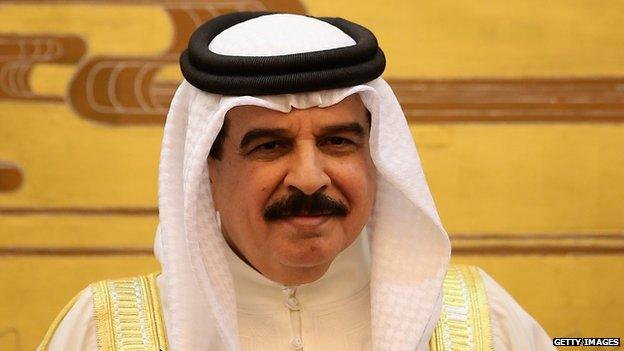
The King of Bahrain, Hamad bin Isa Al Khalifa, allows "political societies", but political parties are banned
Political parties are banned under the Constitution, but "political societies" have been allowed since 2005.
In 2002, Bahrain changed from an emirate to a hereditary constitutional monarchy headed by Sheikh Hamad bin Isa Al Khalifah.
The peaceful protests of 2011 were violently suppressed by security forces, with more than 50 people, including five police officers, killed over the course of a few months.

Have the protests led to change?
Since 2011, hundreds of Shias have faced trial for taking part in the demonstrations and the violence has continued, with Shia protesters still frequently clashing with security forces in villages outside the capital Manama.
The crackdown has included the introduction of life sentences or the death penalty for attacks that cause injury or death. Protesters may also be stripped of their citizenship and deported.
The "national dialogue" which aimed for a political settlement of the unrest ended in stalemate and was suspended in January 2014.
A damning report on human rights abuse by security forces during the unrest, including torture, led to King Hamad promising police reforms. However, opposition activists have recently accused them of an increased campaign of arrests, and of targeting women activists.
Three Bahraini rights groups have also denounced the recent Shia arrests. Some of those arrested have been calling for an alternative vote on election day - a referendum on "the legitimacy of the Bahraini regime".

What is the mood on social media?
There has been a lively, sometimes fiery debate about the election, but it echoes the country's political polarisation.
Prominent Shia human rights activist Nabeel Rajab is using his Twitter account (245,000 followers) to actively campaign for boycotting the elections.
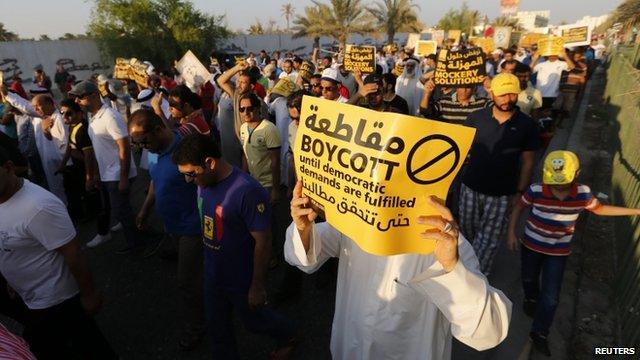
The main opposition group, Al-Wefaq, has called for a boycott of the elections
In contrast, Mohamed Al-Arab - a well-known Bahraini journalist who works for the pan-Arab Saudi-funded Al-Arabiya TV station - is tweeting people to turn out and vote (128,000 followers).
And members of the February 14 Coalition, a cyber youth group, have been encouraging Bahrainis on social networks to take part in the "legitimacy" referendum.

Who can vote, and what are they voting for?
In 2002, Bahrain changed its National Assembly from one chamber to two. The 40 members of the Shura Council are chosen by the King.
The Council of Representatives consists of 40 members directly elected to serve four-year terms. Each MP represents one district and is elected by absolute majority.
Universal suffrage was introduced in 2002; any citizen over 20 years of age may vote.
Voting will take place between 0800 and 1800 (local time) at 52 polling stations under the supervision of magistrates.
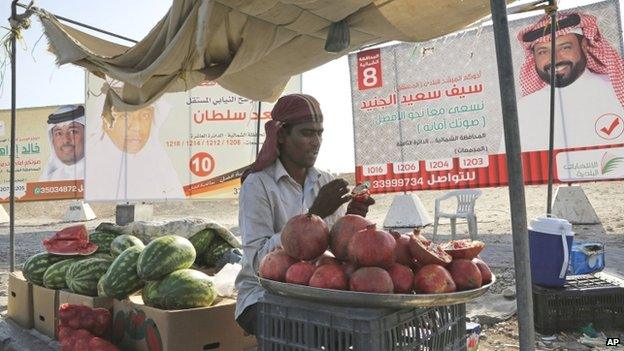
Candidate billboards on the streets of Hamad Town, Bahrain
Overseas voting took place on 18 November at embassies and missions around the world. The government news agency BNA reports a massive turnout of expatriates.
Any literate citizen who is over 30 years old and whose name is on the electoral roll is eligible to stand, provided they have not been convicted of any crime.

Will there be any trouble?
Manama has said international observers are not necessary for the elections, but there will be 301 local observers.
The authorities have warned against attempts to disrupt the polls and a massive police presence is expected across the country.
But Al-Wafeq leader Sheikh Ali Salman has said "no-one can guarantee that the opposition will remain peaceful".

What is the likely outcome?
Many are predicting a low turnout despite the government urging the around 350,000 eligible citizens to come out in force to vote.
But because of the boycott, the voters' choice will be limited to Sunni parties or independents. Islamic Forum, the Salafist Al-Asalah and the National Unity Assembly are all fielding some of the 266 candidates.
The result will be a continuation of the political deadlock that has bedevilled the country for the past three years.
BBC Monitoring, external reports and analyses news from TV, radio, web and print media around the world. You can follow BBC Monitoring on Twitter, external and Facebook, external.
- Published28 October 2014
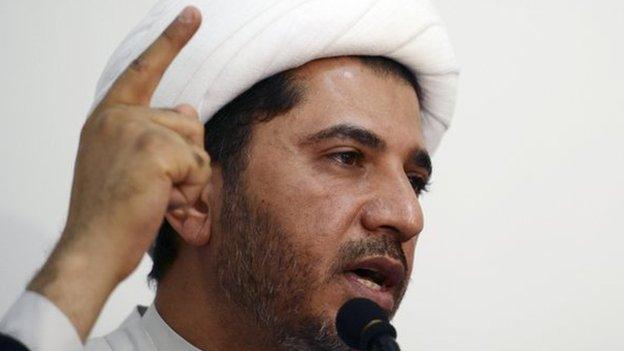
- Published24 October 2014
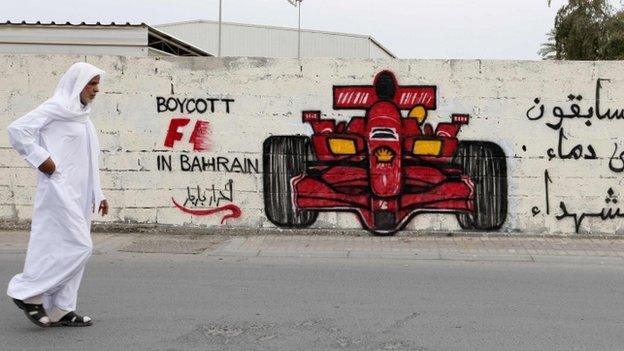
- Published11 October 2014
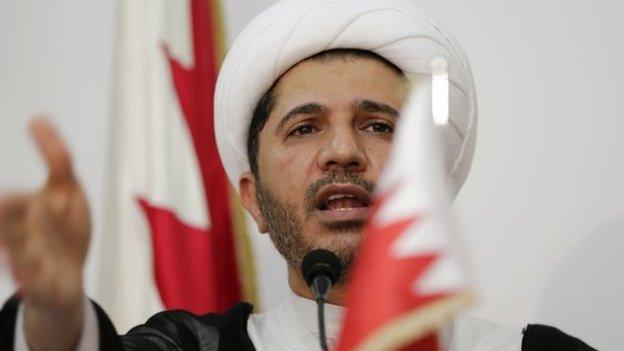
- Published21 August 2023
